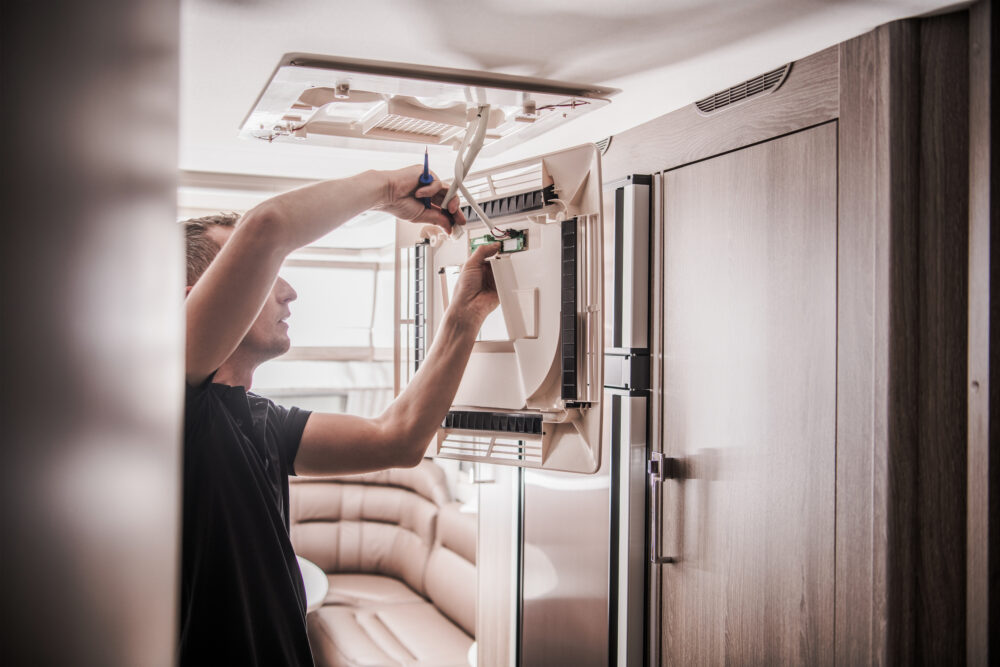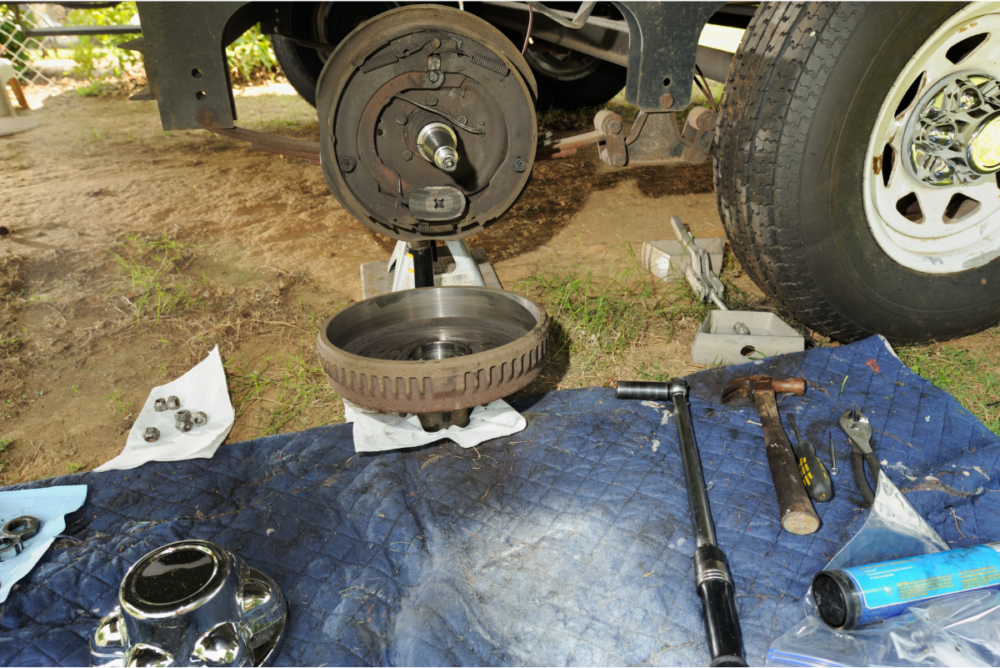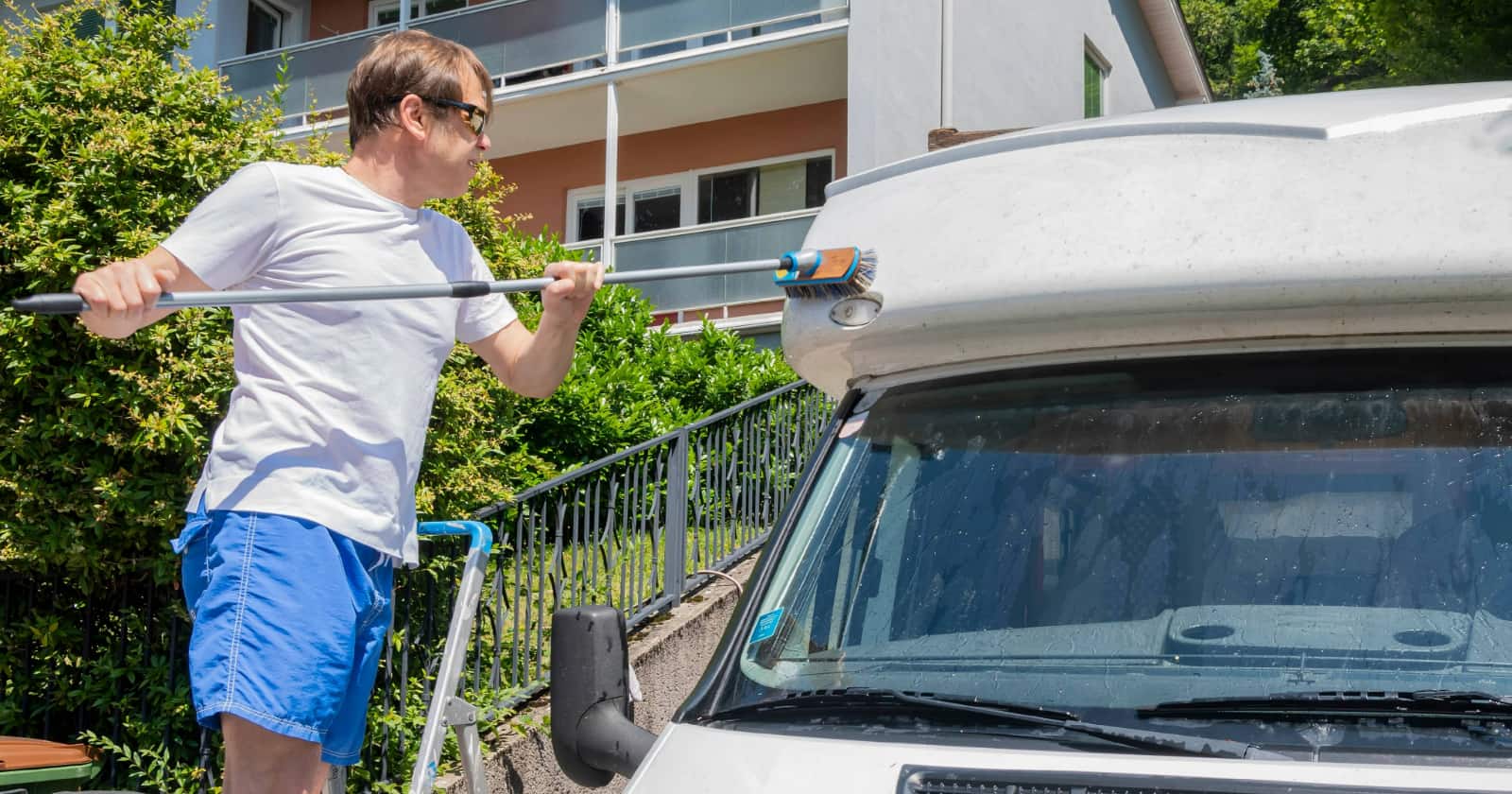
Critical RV Maintenance Tasks To Ensure A Trouble-Free Camping Season
You’re ready for the camping season, but is your RV? Prevent RV problems from delaying the start of your camping season with these preventative maintenance tasks.
Camping season can seem so far away when we’re waiting for it to get here; however, it does sneak up on us. When camping season finally arrives, we want to be ready to go!
Prior to embarking on your first RV trip, it is advisable to perform some preventive maintenance in addition to dewinterizing, which mainly entails purging the antifreeze from the plumbing system. This guarantees a seamless camping experience throughout the season.
Pre-season preventative maintenance
Having a camping trip cut short or postponed due to avoidable RV issues is frustrating, to say the least. Although not all RV issues can be avoided, preventative maintenance can significantly reduce them.
Before embarking on your first camping trip of the season, it is essential to dedicate an afternoon to ensure that your RV is prepared. This pre-season planning should include thorough maintenance to prevent any potential issues. While maintenance is necessary throughout the season, it is especially crucial prior to your initial trip.
The list of preventative maintenance tasks for RVs can be long. While it’s all important to do, we are going to look specifically at some things that are important, particularly before your first trip of the season.
Wheel bearing service
This is a top-of-the-list task for myself and most RVers. Checking and servicing your wheel bearings before you start your season can potentially save you a disastrous first trip. Wheel bearings often get forgotten, as you don’t see them, and even when doing tire checks, they often get overlooked.
Most modern RVs have quick lube bearings, which makes the service super easy. If you have an older RV, you may have to repack wheel bearings, which is more of a dirty job but a critical one. We take a more in-depth look at wheel bearing service here.
Although properly maintained wheel bearings last a long time, greasing isn’t always the answer. It’s important to actually check the bearings for play and discoloration caused by overheating. Pumping grease into a bad wheel bearing won’t get you very far.
Water heater flush and inspection
Having hot water to shower in after a campfire, a swim in the lake, or a long hike is a convenience we have come to love while RVing. Opening the tap and getting hit with cold water is not how most people want to start their day.
RV water heaters are generally drained at the end of the season to prevent freezing. Before refilling your water heater and hitting the road, there are a few things to check and some preventative maintenance to do.
Check and replace the anode rod of your water heater to prevent corrosion. Anode rods are inexpensive and easy to switch, and some RVers opt to replace them annually, regardless of wear. To inspect the tank, remove the anode rod or the drain plug if you lack an anode rod.
Without specialized equipment, it is impossible to inspect the interior of the water tank; however, its condition can be evaluated by flushing the tank. By flushing the tank, any accumulated scale will be eliminated, and potential signs of corrosion will be uncovered. The presence of metal or rust scales during the flush is indicative of tank corrosion.
Flush wands are easily accessible online or at dealers and can simplify the task. It’s wise to detect a defective water heater prior to the camping season to avoid the costly expense of replacement.
Air conditioning preventative maintenance
Air conditioning is another one of those conveniences we can’t live without, even while far from home. A/C preventative maintenance is vital for the life of your RV air conditioner and can save you some hot, sticky nights.
When your RV is in storage, the roof-mounted unit is prone to accumulating dirt, debris, and potential pests seeking shelter for the winter. To prevent your air conditioner from overworking, it’s crucial to remove the plastic cover and thoroughly clean the fan and fragile fins.
Inside, the filters should be cleaned and the ducting should have good seals at all joints. Running the air conditioner before you leave home is good peace of mind that you’ll have a cool, comfortable RV when you need it.
Are your RV tires ready for another season?
Starting the season with tires that you’re confident will be safe and last the season is a nice feeling. Unexpectedly replacing four to six tires mid-season is not such a great feeling.
Your RV tires are all that connect your rig to the road, making them a critical point of safety. Adding some air and giving them a kick before the season isn’t sufficient. Tire inspection is an ongoing task that should be done periodically, not just throughout the year but throughout your trips.
Tire preventative maintenance should include a thorough pre-season inspection. Checking the manufacture date, sidewall, and tread condition and ensuring your tires are free of leaks is essential. If your tires are balanced, it’s also a good idea to have them checked and rebalanced if required.
Want your RV tires to last longer? Keep them clean and coated with a tire protectant and use tire covers to prevent breakdown from the sun.
Check your trailer brakes
Trailer brakes often get forgotten until there is a failure or you need a complete overhaul of them. Any RV with trailer brakes should have a start-of-the-season inspection done.
Inspecting trailer brakes requires taking off the wheels and brake drums, a task that may require the assistance of a dealer for certain individuals. However, for those who prefer a do-it-yourself approach, removing the drum will allow for a visual assessment of the drum and brake shoes. The presence of excessive wear, uneven wear, or grooves serves as an indicator that you will need a brake replacement.
Some brake setups will have sliding parts that require grease periodically. Any grease from wheel bearings should be fully cleaned off of brake parts, and the source of the grease checked. Don’t forget to check the wires running to the brakes for breaks or chafing.

Track your RV maintenance
Your pre-season maintenance is just the beginning of the maintenance RVs require. The more detailed you are with doing and tracking maintenance, the less likely you will be surprised by major issues.
Preventive maintenance is not only good for you but for future owners. This means that when it comes time to sell, your RV will be in top shape with no issues for buyers to haggle over. Having your maintenance documented makes it less likely that you’ll forget something and gives future buyers something to look at.
RV LIFE Maintenance provides a quick and easy way to keep all your RV records together and easy to view. The cost of missed or delayed preventative maintenance can be huge, not to mention missed time on the road!
Continue reading:



